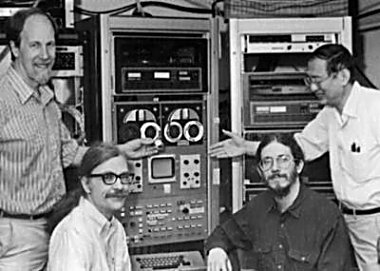
|
| Nach Hause | Roll: botic | catfish | chl | ghack | girlsCamp | j.ortner | oberhamsi | p3k | ribbonfarm |
StefanL, 24.03.04, 00:34
|
last updated: 18.11.24, 09:09

Books and Fashion
Business and Economy Cloud Appreciation Media Ecology Movies and Music Glossaries and Grammars Great Jewish Songs Obituaries People in Information Science Political Science ... all tiny topics Youre not logged in ... Login
 Du hast recht,
Universal-Genies brauchen wir echt keine mehr. Ich wollte eh nur sagen: Things are going to slide, slide in all directions. Won't be nothing, won't be nothing you.... by MaryW (31.10.24, 23:13) ...
Hm. Ich glaub, da gibt es schon noch einige Kandidat*innen. Mir fällt spontan Lisz Hirn ein. Ich fürchte nur, die schaffen es nicht mehr, so.... by tobi (03.10.24, 19:21) Es gibt sogar
Verbrecher, die das ganze WE zusätzlich durcharbeiten, um Pegelkarten zu bauen. Das sind dann die allerletzten. by gHack (17.09.24, 18:56) Geändert
Inzwischen hat Herr Fidler den Fehler erkannt und korrigiert sowie sich inzwischen bei den LeserInnen entschuldigt. Nur damit das nicht untergeht. Wir haben hier in der.... by StefanL (21.02.22, 09:17) There has been evidence
that the important and successful ideas in MSFT - like licensing the Unix source code in the 70ies and learning from it and licensing QDOS.... by StefanL (02.01.22, 11:18) Now
I think I maybe know what you meant. It is the present we know best and the future we invent. And history is mostly used.... by StefanL (02.01.22, 09:51) ???
Hey, it's just a phrase wishing to convey that you're always smarter after the event than before it. by StefanL (28.12.21, 07:35) Addendum
Oracle is now mentioned in the English Wikipedia article on teletext and even has its own article here. Electra has one too. by MaryW (22.12.21, 07:11) We have grossly erred
At least in point 5. We thought, people would have come to the conclusion that permanently listening to directive voices as an adult is so.... by MaryW (21.12.21, 07:42) Did not want to spell the names out
Ingrid Thurnher should have been easy, as she is pictured in the article. Harald F. is an insider joke, the only media journalist in Austria,.... by StefanL (19.12.21, 08:45) ...
with four letters it becomes easier though i am not sure with hafi… anyhoo, inms guessing acronyms or whatever this is. *it’s not my steckenpferd by tobi (24.11.21, 20:49) Should be
pretty easy to guess from the context and image who HaFi and InTu are. Besides, thx for the hint to the open bold-tag. by MaryW (22.10.21, 01:16) Low hanging fruit
1 comment, lower geht es mathematisch schon aber psychosomatisch nicht. by MaryW (15.10.21, 19:51) Freiwillige Feuerwehr
Wie ist das mit den freiwilligen und den professionellen Feuerwehren? Wenn 4 Häuser brennen und nur 2 Löschzüge da sind, dann gibt es doch eine.... by MaryW (22.07.21, 07:06) Well
That is a good argument and not to be underestimated. I was convinced a malevolent or rigid social environment (the others) posed the largest obstacle.... by MaryW (18.07.21, 08:54) Und noch etwas
Die Schutzkleidung ist ein großes Problem. Sie verhindert allzu oft, dass mann mit anderen Säugetieren gut umgehen kann. by StefanL (26.05.19, 07:09) Yeah
U get 1 big smile from me 4 that comment! And yes, i do not like embedded except it is good like this. It's like.... by StefanL (19.05.19, 16:30) |



